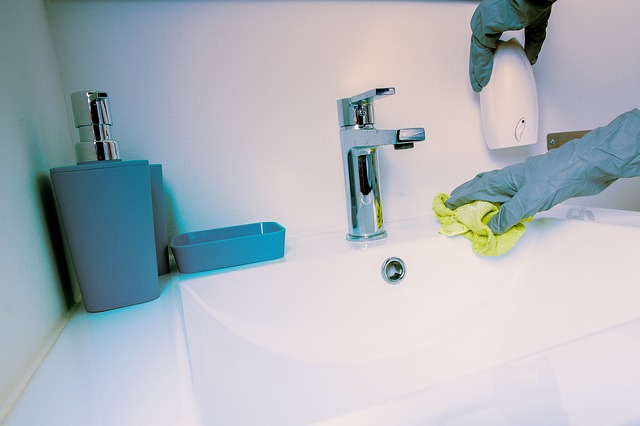Guide to Implementing a Basic House Rule for your domestic helper.
Date Posted: 16/12/2021
Guide to Implementing a Basic House Rule for your domestic helper.

Once your domestic helper has settled into her room and unpacked her things, she is ready for this one-on-one conversation with you about the rules of the house. Explain to the domestic helper that your house rules will help her better understand how your family works. It lets you and other family members work together to create an environment of peace, love, and trust. The same rules apply to all family members, young and old.
Your domestic helper is an adult, and her compliance to the rules helps you set an example for your children, and this will earn the respect of the whole family in due course. Let her know that the more experience she gains and adapts favourably to your family, her efforts and loyalty will be noticed and recognized.
The following is a suggestion of those house rules tailored to your needs and wants. It is impossible to set too many detailed house rules.
Rule 1: Hygiene and personal appearance
Good personal hygiene habits will protect her, you, and your whole family from germs and diseases. Practice good hand washing techniques. Talk about how great it is when the people around you are clean, well-groomed, and healthy and how horrible it is to be around someone who looks messy and smells bad.
- Bath: Explain to her how important it is to take a bath at least once a day (preferably after intense activity) and use deodorant if necessary. Bath towels and other towels must be changed weekly.
- Brushing of teeth: One of the rules on personal hygiene should involve brushing her teeth at once or twice a day.
- Clothing/Uniforms/Underwear: Clothing/uniforms and underwear should be changed daily after showering and kept clean and tidy.
- Cough and cold: Explain to her how important it is to use wipes and rinse them after use or throw them out regularly. Containers get disinfected daily. Thus, it will look healthy and tidy.
- Length of nails and hair: It's simple and straight to the point; keep it short and clean.
- Monthly Period: Explain to her how important it is to wash regularly and change sanitary pads and wash hands after changing before entering the kitchen or touching anything that is consumable. These sanitary pads should be properly wrapped and discarded in a covered container.
- Washing of hair: Hair should be short and washed daily. Otherwise, the hair should be tied up neatly and covered when handling food.
- Washing of hands: Wash before eating, preparing food, taking medication and first aid, after handling animals and litter, blowing her nose, and using the toilet, even after treating the sick. Explain that whenever she is in doubt about washing her hands or not, that's the perfect time for her to wash her hands.

Wash hands before meals and snacks.
In the kitchen, the best time to wash your hands and make sure your domestic worker sticks to this is by practical example; wash your hands before handling food, and your domestic helper will have no excuse not to imbibe this culture. Let her use soap and water and put in a bit of effort while washing her hands. Antibacterial soap is a good idea for extra protection.
Working Hours and Days Off
Most domestic helper starts work for the day between 5:30 a.m. and 6:00 a.m. and end between 9:00 p.m and 10:00 p.m; between these hours, she would have a short break in the morning and evening. Explain that you will try to uphold these breaks for her, but you also want her to be flexible if necessary.

No Smoking
Smoking is a habit that is also harmful to health, and with kids around, they might pick it up from an early age, which is something no parent wants.
Honesty in all circumstances (no white lies)
Explain to her that it must be factual and sequential whenever she gives an account of any situation. You don't have to participate, and no exaggeration will be appreciated.
She should clean her room every day, always keeping it clean and tidy.
Sheets must be changed on the 1st and 15th of the month (some employers prefer the weekly change).
Not sharing food, utensils, or dishes with family or friends
This good habit protects her and your family from the spread of germs, diseases, and illnesses. Also, remind your kids to follow this rule.
Treatment of children and family members
She should always initiate the welcome message.
When dealing with children or the elderly in her care, give firm but kind and clear instructions.
There should be no loud voices, threats, pinches, slaps, punches, or other forms of physical violence. There shouldn't be any verbal abuse either. If dealing with children or the elderly in her care becomes an issue, provide an accurate report of the incident and only provide full details. You, as the employer, have the power to decide and sanction if necessary. Also, you need to determine if you will allow her to call you if you are away or at work.
In all situations, your actions and words should be used to alleviate a problem rather than to make it worse.
Children should stay home when they are not feeling well (for example, if they have a fever, severe cold, or cough). Their activities at home should be relaxing. Depending on your kids' age group, you should provide her with the number of hours your kids can spend watching TV and on their mobile. Ideas for alternative activities such as board games, crafts, listening to audio stories, appropriate music, and cooking can be given.
In case of emergency
Instead of an emergency, you need her to be calm, observant, and alert. She has to take a mental note of the whole situation. Therefore, she needs to focus on the facts and calm her emotions. Is it a minor or a major emergency? Tell her the chain of people to contact if you are not available for some reason.
A contact list should be placed in a central location in the house.
Treatment of guests
Be polite and welcoming. Always start the welcome with a smile and offer them a selection of drinks.
Establish rules for socializing.
Is she allowed to socialize during working hours or only on weekends? Is she allowed to have a cell phone, and what time can you talk to her family and friends? How long is she expected to be on social media, and what time of the day is she allowed to be online? Many domestic helpers now use their smartphones or other devices to make Wi-Fi calls at home and stay in touch with their loved ones.
You are the best judge if you want to share your internet and password with your domestic helper. Personally, I am in favour of this practice because, in the case of an emergency, you will be reached easily. However, this also allows for a possible security breach.

Use of mobile phone and internet
House rules for your domestic helper should include cell phone control and internet use, but be careful. Establishing a clear schedule for your domestic helper when she can and cannot use it will ensure that she stays focused during working hours. Every member of your family should also respect the time allotted to use the phone.
After all, giving her time to call home, whether on her landline or cell phone, can reassure her, improve her attitude at work, and maintain her mental and emotional health.
When someone is or appears to be sick.
Explain to her that she needs to avoid close contact and don't shake hands, hug, or kiss. She should wash her hands often and keep the area around her clean, as explained earlier.
Loyalty
Her loyalty to all family members must be demonstrated and maintained at all times.
This will be highly respected and appreciated. Hence, she should avoid sharing sensitive topics and information about your family members with strangers and even her friends.
Security and privacy in the house
The safety of your domestic worker and your family is paramount. So take the time to explain how she should keep the house safe for everyone. For example, remind her to keep house keys properly and away from open windows along the main hallway, lock the door, or lock the extra lock.
If you want her to close all the windows in the house when she goes out to buy food or do something else, let her know.
It can also happen that your friends or family visit your home without informing you or when you are away. Tell her what to do in such circumstances: can she invite them in, wait for you to come home, or call you for permission to allow them to go into your home? If you don't want her to have her friends over, be clear from the start to avoid misunderstandings.
Bottom Line
Some of the above-listed house rules may seem like common sense. However, this is not necessarily basic knowledge for domestic workers of different origins and cultures; Having a few ground rules in advance can avoid misunderstandings and reduce health and safety risks.
If possible, review these rules during the interview to see if they feel comfortable with them before hiring. This way, you can discuss the finer details when they join your family. It is also an excellent practice to review these rules regularly to improve your working relationship with your helper.

